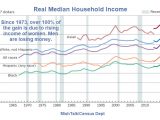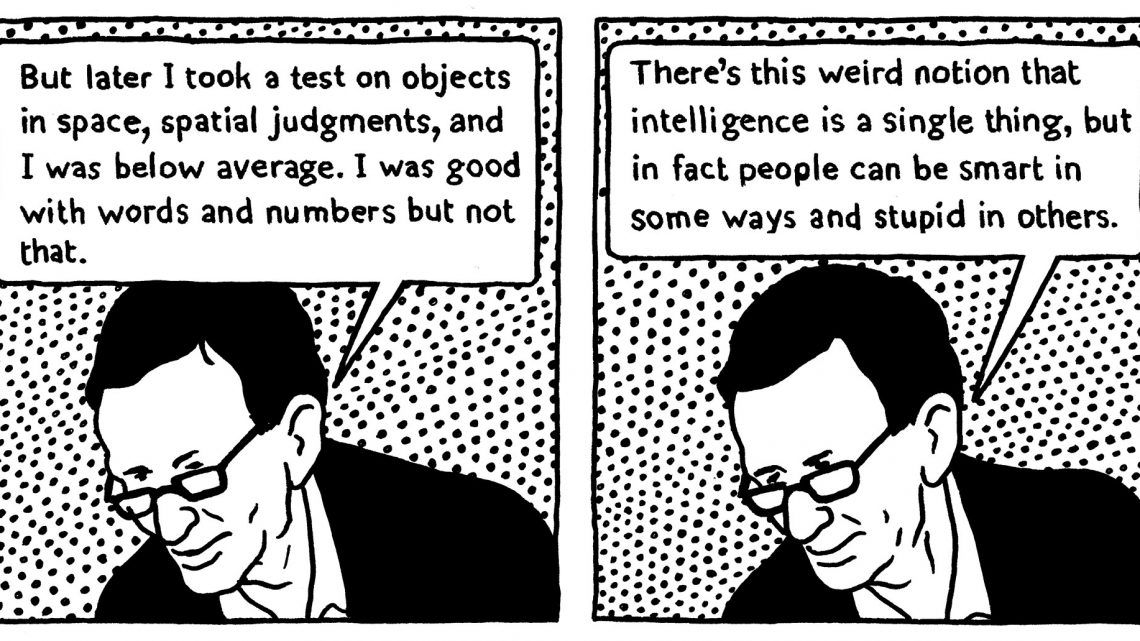
A New Graphic Novel Explores the Pain of Childhood Stardom
September 14, 2018Until recently, Michael Kupperman was known for crafting the funniest comics in the graphic storytelling game. He’s done a lot of hilarious stuff for the New Yorker, VICE, McSweeney’s, Adult Swim, Comedy Central, and everyone else. His last book was the fictional Mark Twain’s Autobiography 1910 - 2010, which he promoted by doing readings in a Mark Twain costume. But with his new book, All the Answers, Kupperman’s buckled down and knocked off all the yukking around.
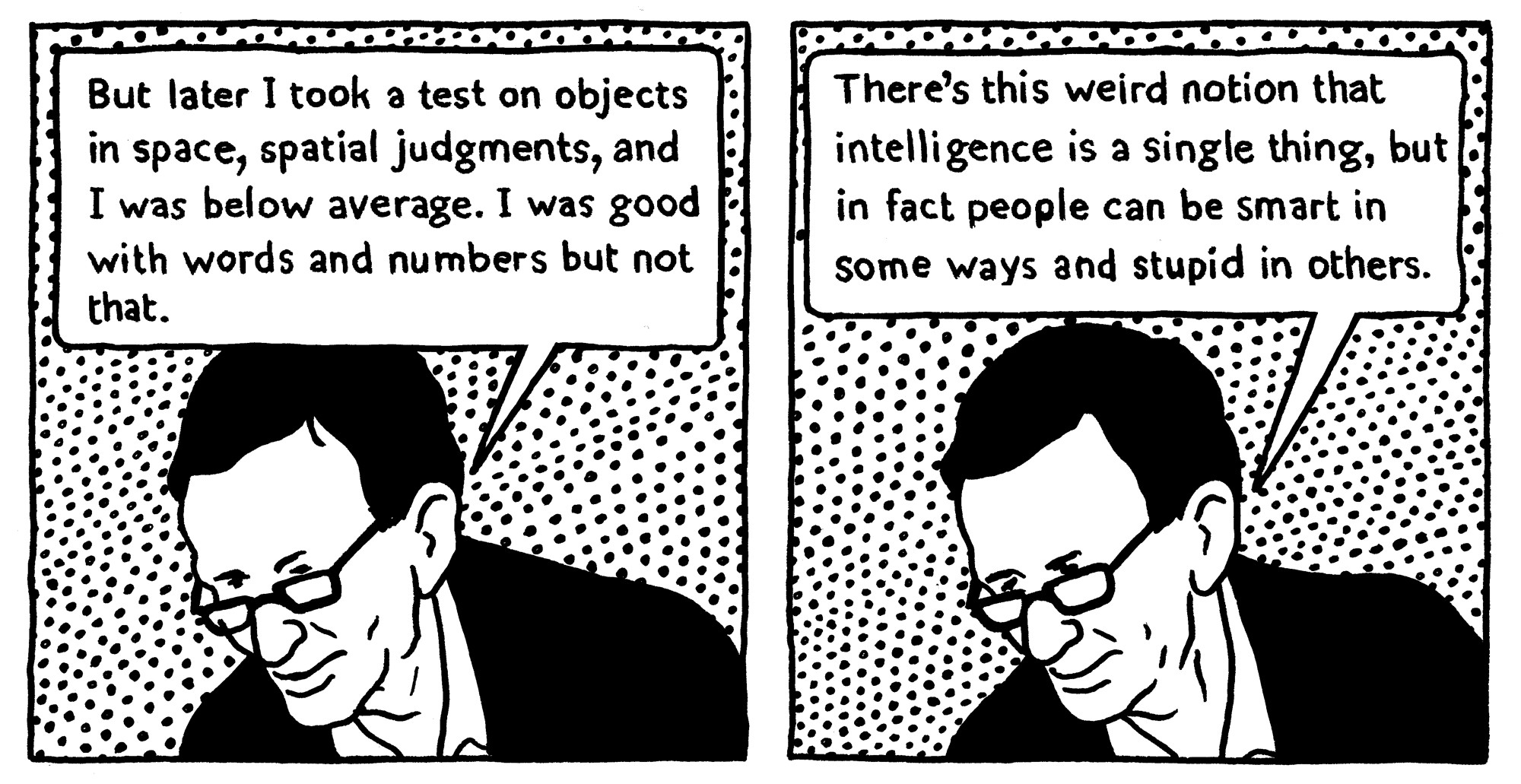
All the Answers tells the life story of Michael’s father, Joel Kupperman, who became a national phenomenon at a young age from his weekly appearances on the trivia radio show Quiz Kids. Joel Kupperman was pushed into the spotlight by his mother, a typical stage mom and then propelled farther into fame when he was used as pro-semitic propaganda during WWII. He became a full on national sensation, starring in a bad movie where he played himself and being forced to go to parties so his mom could rub elbows with celebrities. Being in the public eye severely taxed Joel Kupperman’s mental health and caused him to completely withdraw from the world around him. With All the Answers, Michael Kupperman is attempting to understand who his father is/was and how not to repeat the mistakes of his father and his father’s parents. He discusses important topics such as fame, America, family, mental health, prejudice, all the big stuff.
I decided to interview him about All the Answers after he started subtweeting about what a piece of shit I was for not interviewing him about All the Answers.
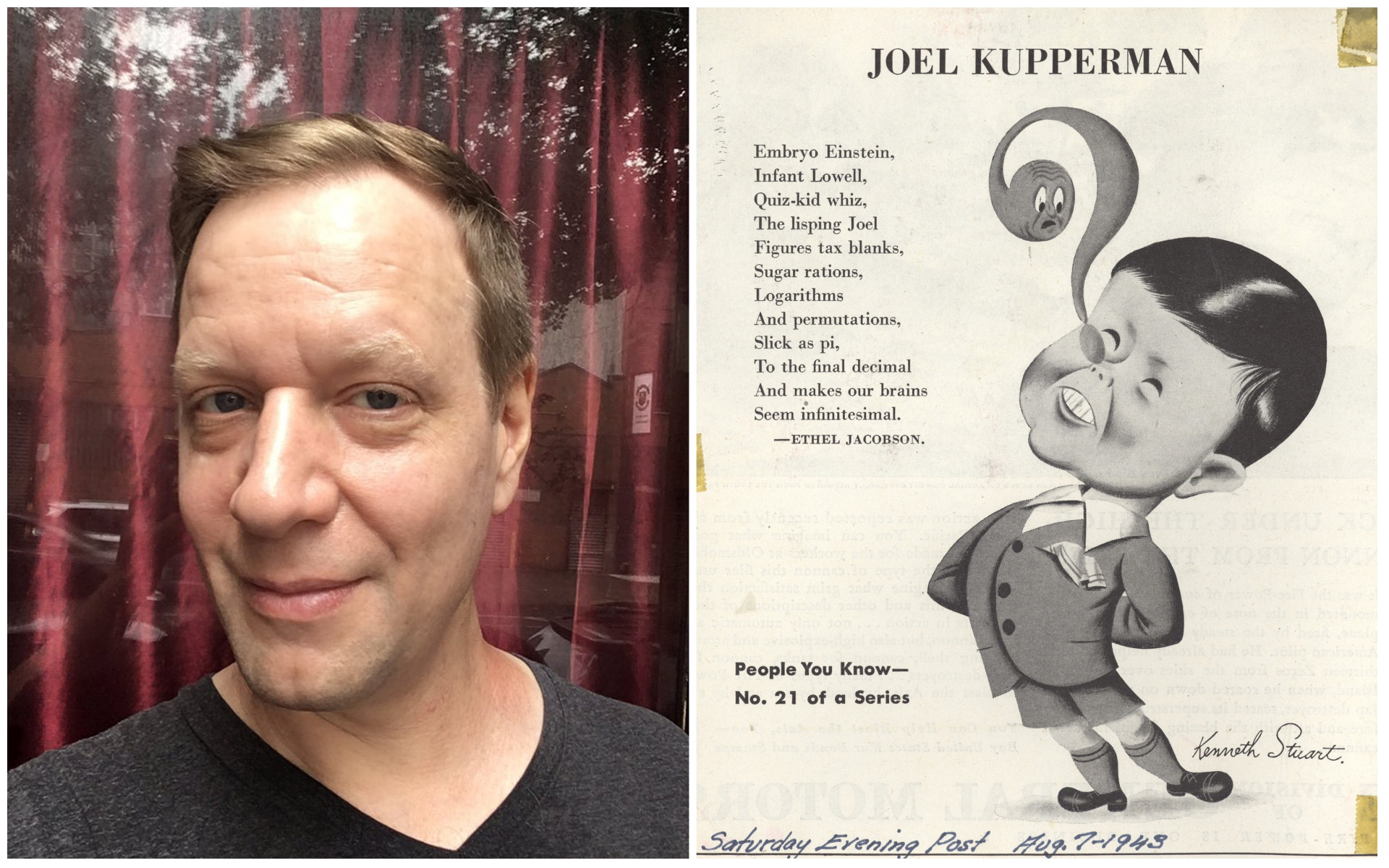
VICE: What led you to become a cartoonist?
Michael Kupperman: I didn’t even consider it until I was an adult and had already been to art school (for a different type of art). I was living in Williamsburg and friends were putting together a xeroxed comic zine called Hodags and Hodaddies. I did a few pages and started to feel like this was an art form that would be rewarding for me, that I could do something new with it. A piece of paper and a pen could be the gateway to a new kind of narrative. Still not sure if this was a good decision.
Do you hope to follow All the Answers with more serious graphic novels? Are you trying to get out of the comedy ghetto?
I want to explore more serious subject matters now. I realized a little while ago that if I could communicate humor to like-minded people, then I could communicate more universal emotions to larger groups of people. The experiences I’ve had in my life have caused me to form ideas about human behavior, and I’ve gotten to the stage where I want to express them, and continue to grow as an artist.
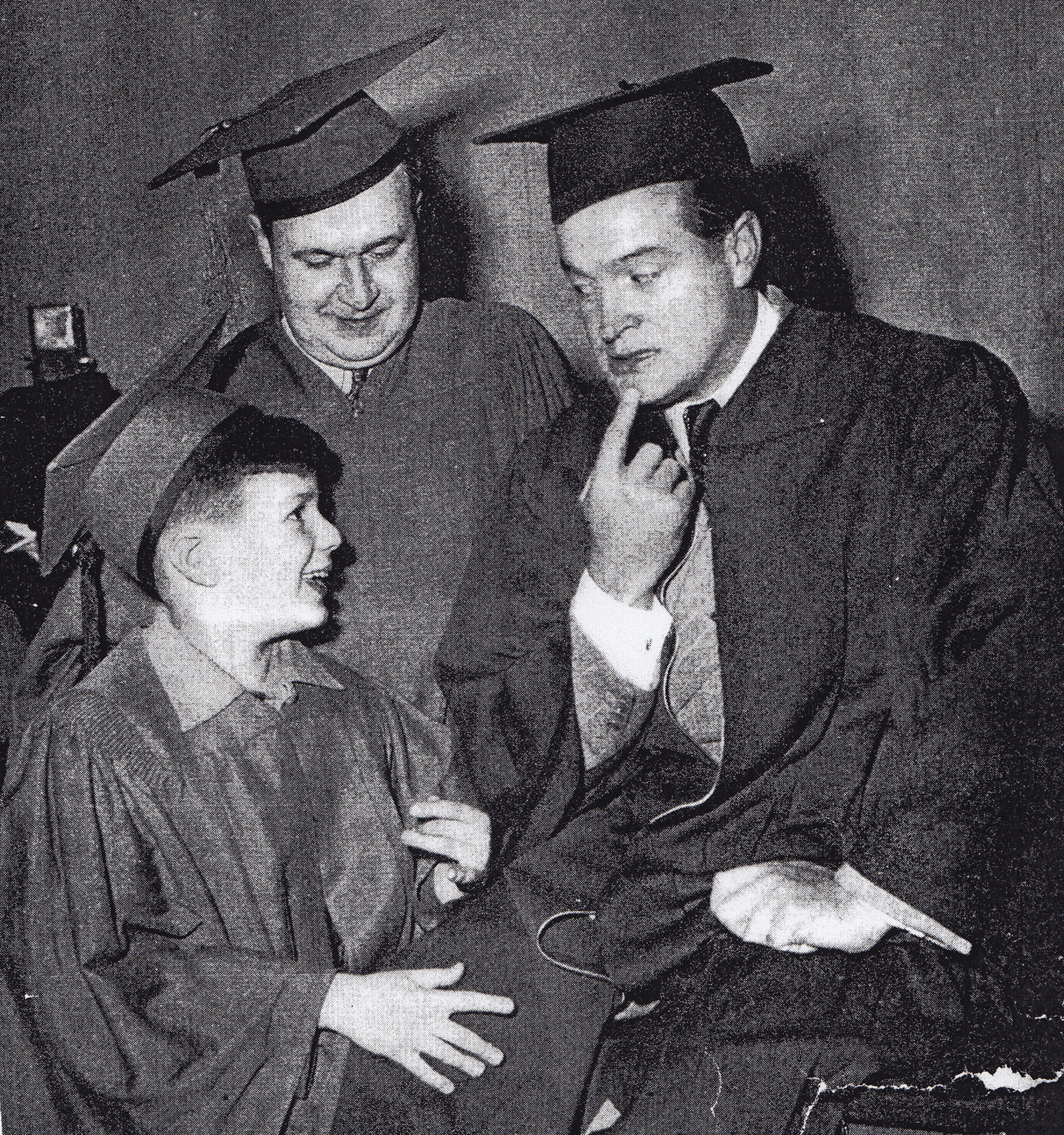
What was it like making All the Answers?
It was an intensely painful experience, and the most difficult thing I’ve ever done. I set out to make this book in 2012, around the same time that my father started to show signs of dementia. I knew I didn’t have much longer to get anything from him, but I also really believed that maybe I could halt his decline if I brought out lost memories. I was of course wrong. There was a lot of research, but then it became obvious to me that I had to be part of this book, and that my pain, my real sadness, would have to be in it for the book to work. I wrote it over and over, and then I had to draw it. Completing it seemed impossible. I had to practically hypnotize myself to do it all. I hand-lettered every piece of the book except the bar code, because it is magic. It’s not just a book but a spell to adjust the balance of the universe and heal my family. It was so intense that part of me is still stuck in the process, like I’m going to wake up and still be working on it.
You decided to draw yourself with eyes that are little dots inside a circle with black shapes that shift between being the shadow of your brow and your eyebrows.
I believe it makes the book more universal to have a simpler lead character that the reader can project themselves onto. I did try a version with a more realistic version of myself, but it was too jarring, and I couldn’t face drawing myself over and over.
I wasn’t aware of who your dad was and I got pretty confused during the scene where he’s watching Abbott & Costello and mentions that they gave him a dog.
That was the desired effect. I wanted the reader to not be sure what’s going on at first—Is this a delusion or something real? I think it helps pull the reader into the mystery of what is true. Is one person’s experience the reality of a situation? Is it the agreed-upon experience of the majority? Everything my father felt and took away from Quiz Kids was very different from how most other people saw the reality he was living. To them, it looked like a fabulous dream. He was famous, he was meeting lots of celebrities, and doing glamorous things. He was on radio and then TV every week.
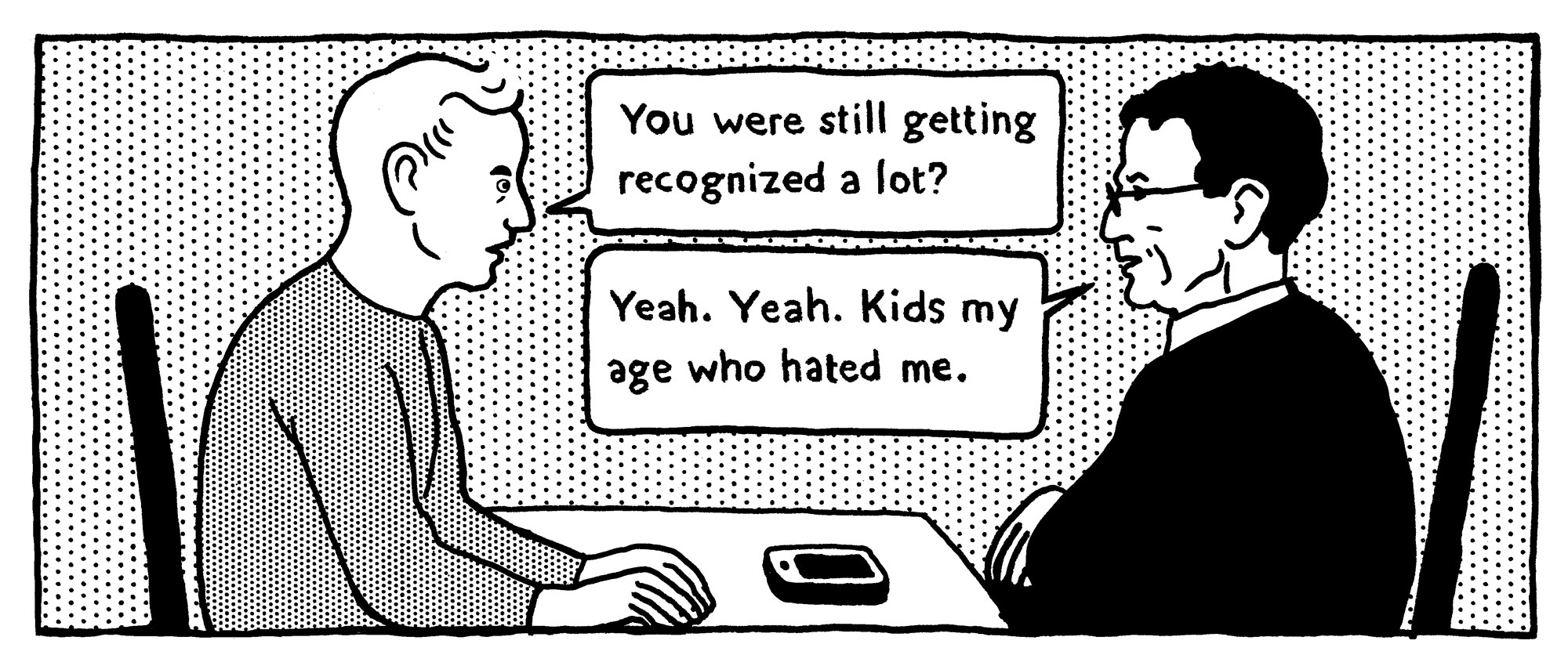
How many of the other Quiz Kids are still around?
There are a few around. A couple have contacted me. Richard Williams, the other surviving member of the star Quiz Kids who toured during the war, has written to me and said he hadn’t realized how hurt my dad had been by the whole experience. He came on the show when he was older and it just didn’t have the same effect on him.
There’s a scene in your comic where you show your father being attacked by students while he’s attending college. You mention in the book that you based this scene on an account you’d read online by one of his attackers. Was the tone of this story remorseful?
No, quite the opposite. The roommate who boasted of attacking him, and also complained about my father screaming in his sleep, was a white supremacist. In his writings, he uses my father, a Jew, as an example of a degenerate race. He was quite proud of his own behavior. Actually, he was an early example of a type that’s prevalent today, the proud internet Nazi. He was posting these stories in the early days of the net. I didn’t want to credit him by name, but I had to use what he had said, because I believe it’s true. My father didn’t remember it at all, but that’s because of how he’d erased every unpleasant experience he’d had from his own mind.
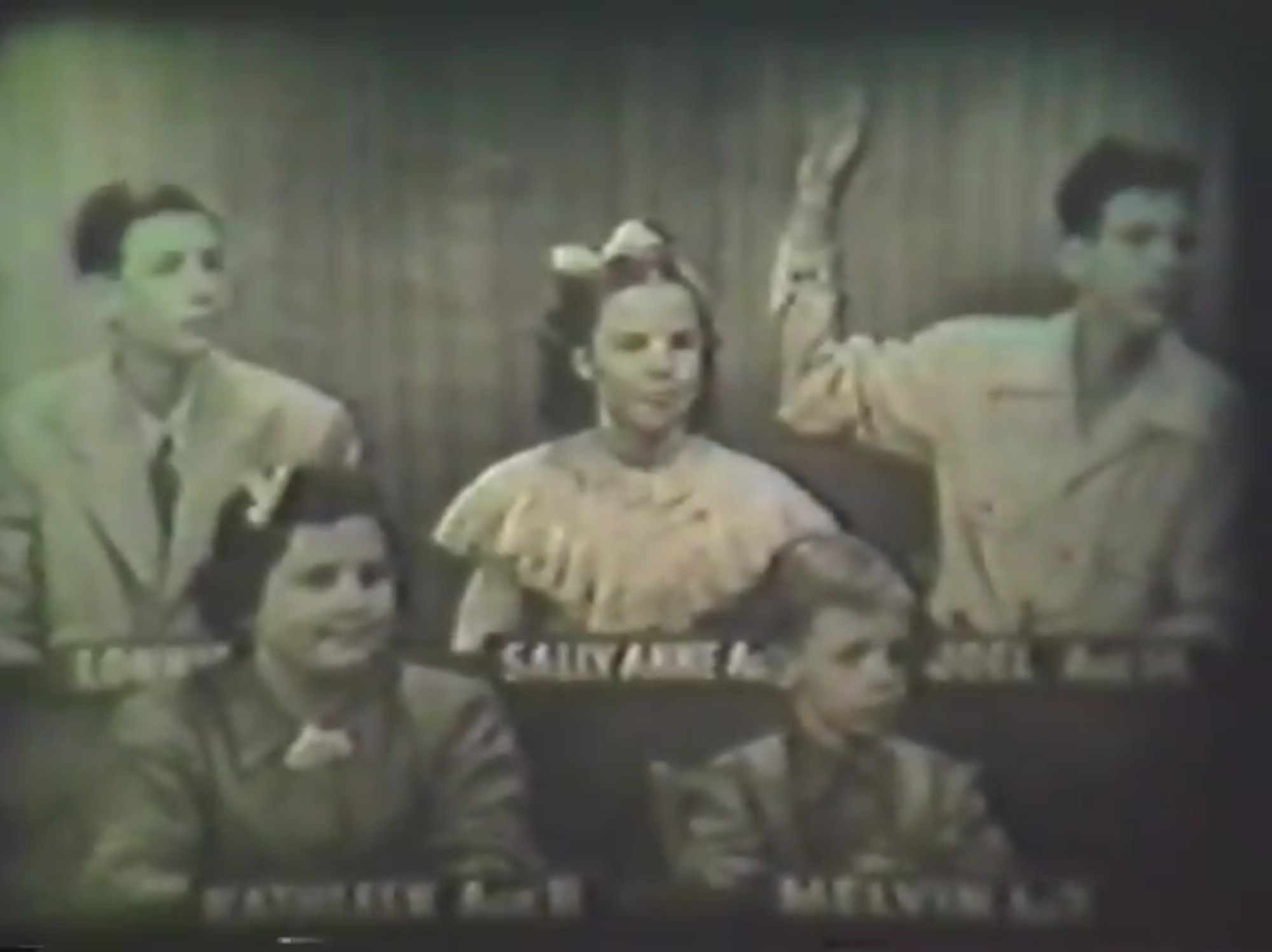
What were some of the things you wished you could have included in the book, but had to cut?
There are endless details and side stories. Other Quiz Kids included James Watson and the artist Rini Templeton. My father and Have Bennett were ball boys in an all-star baseball game coached by Babe Ruth and Ty Cobb. Bob Hope used my father as a punchline constantly through the 1940s. Eleanor Roosevelt and J. Edgar Hoover asked questions on the show in 1945. Certain women columnists mused about what kind of boyfriend my seven-year-old father would be... It would have been a very different book. There were also themes that didn’t make the cut, such as the idea that before the war was the age of the individual, and after the war what mattered was the committee and the machine.
Has your mother read All the Answers?
She has. Much to my relief, she liked it and was not upset. I was very worried. I think due to my investigation and conclusions, she actually sees my father a little differently than she did before. Now, she’s more aware of how traumatized he actually was.
Follow Nick on Instagram.

